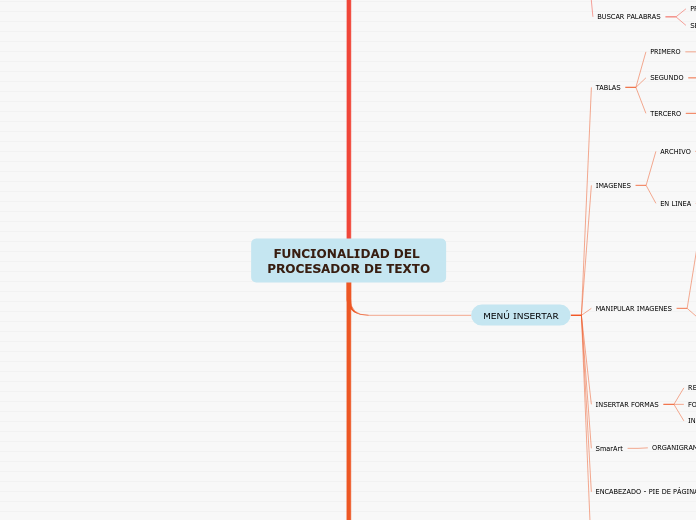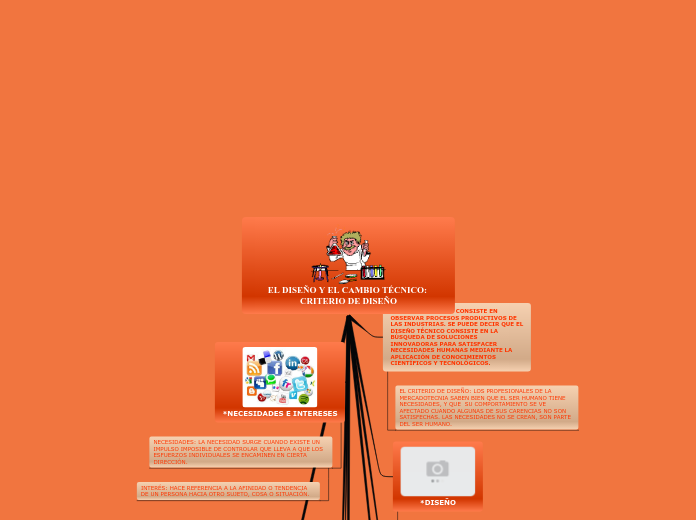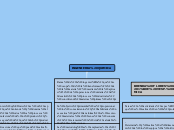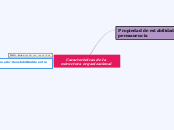FUNCIONALIDAD DEL PROCESADOR DE TEXTO
To name your story, you have to think about the overall message and what you want your audience to understand from the story. Also, make it relevant and easy to remember.
MENÚ DISEÑO
The ending of a story is essential. We all know that if the ending is weak, what happened before loses its importance. So make it unpredictable, but fair. A resolved ending answers all the questions and ties up any loose threads from the plot.
BORDES DE PÁGINA
VALOR DE BORDE
PERSONALIZADO
3D
SOMBRA
CUADRO
NINGUNO
COLOR DE PÁGINA
This is the closure section of the story.
See examples of possible outcomes below:
- all problems have been solved
- it's clear how each one of your characters ends up
- your main character is transformed by the challenge
MÁS COLORES
SIN COLOR
Try answering these questions to come up with a closure:
- Have all the problems been solved?
- Is there a clear picture of what happens with each character in the story?
- Has the challenge transformed your main character?
- How do the characters feel in the end?
MARCA DE AGUA
This is the moment when the main character surpasses the last obstacle and finally faces their greatest challenge.
The climax usually follows one of these patterns:
- realization
- resolution
- choice
Type in your answer.
TEXO/IMAGEN DE FONDO
MENÚ INSERTAR
The middle of the story is where you add layers of complications that will lead to the end. Reveal more about the character's journey. Did their personality go through changes? How did they overcome the challenges? And as you build up the story’s central conflict, make it more personal to that character. Also, from the middle act, you have to lead into the final act.
NÚMERO DE PÁGINA
FORMATO DE NÚMERO
INICIAR EN
SECCIÓN ANTERIOR
FORMATOS PREDISEÑADOS
UBICACIÓN
ENCABEZADO - PIE DE PÁGINA
CERRAR - ESC
HERRAMIENTAS
ICONOS
ELEGIR ESTILO
SmarArt
ORGANIGRAMA
MODIFICAR DISEÑO/FORMATO
SELECCIONAR GRÁFICO
INSERTAR FORMAS
FORMAS
REALIZAR DIBUJOS
MANIPULAR IMAGENES
There wouldn't be any tension and excitement in your story if there weren't any obstacles in your character's way.
FORMATO
EFECTOS DE FORMA
RELLENO
CONTORNO
TAMAÑO
BORDES
RECORTAR
ALTURA - ANCHURA
HERRAMIENTAS DE IMAGEN
IMAGENES
Your character(s) need(s) motivation in order to solve the challenge(s).
EN LINEA
Secondary characters might also have motives that lead them to cross paths with the main character or which might trigger them to help the main character.
INSERTAR
SELEECIONAR
BUSCAR IMAGEN
CLIC - EN LINEA
ARCHIVO
Why does your character need to confront this challenge? What does he/she expect to accomplish by solving it?
See a few examples:
- will marry in 3 days
- can fix the mistakes of the past
ARRASTRAR IMAGEN
TABLAS
Each story has a main character and that character usually needs to solve a problem or challenge. The character's challenge is the one that creates tension throughout the story.
TERCERO
TABLAS IRREGULARES
DIBUJAR TABLA
Type in any other challenges which other characters in the story need to face.
FILAS Y COLUMNAS
TABLAS ESPECÍFICAS
In most stories, there are 3 challenges. The number 3 is a mystical number symbolizing completeness. Try to come up with interesting challenges with which your character needs to struggle.
See a few examples below:
- turns into a werewolf at night
- is sent back in time
CUADRÍCULAS
MENÚ DE INICIO
In the beginning of the story (or the exposition), you will need to introduce the setting and characters. You might also want to introduce the main conflict. This part of the story is important because it gives the reader necessary background information and maybe even a first insight into a character’s personality.
BUSCAR PALABRAS
SEGUNDO
Ctrl + B
PRIMERO
BUSCAR EN INICIO
ESTILOS
The setting (time & place) of a story can change throughout the plot.
CREAR ESTILOS
The weather is an important element in your story because it can highly influence the ambiance and the mood of the characters.
SELECCIONAR OPCIÓN
The most affected character is the main character. Write down here if he/she is affected by these weather conditions in any way. For example, if they lost a family member or their home during a hurricane, etc.
Decide if you want to include an element of nature in your story. For example, a rainbow can be a very nice choice for a happy ending. The mist in a story can represent mystery and secrets. A thunder can appear in the background at the moment when the 'bad guy' of the story makes its appearance, etc.
INICIO
Does your story include catastrophic weather? See a few suggestions below or add your own:
- hurricane, earthquake, storm, etc
APLICACIÓN
The time of the story can also change. It can describe the event of a single day or can include an entire year's plot. Anyway, don't forget to mention it.
BARRA DE ESTILOS
SELECCIONAR TEXTO
COMBINACIÓN
Your story can take place wherever your imagination will take you to.
For example: in an elevator, in an enchanted forest, etc. Don't forget to give details of the environment each time the setting changes, otherwise, the story can be confusing. Also, mention the seasons as each of them has unique weather and events.
TAMAÑO DE LETRA
COLOR
FUENTE
INTERLINEADO
Characters are essential to a good story. Usually, the protagonist(s) is/are the most affected by the plot. Introduce a character by focusing on their actions, interests, and occupation, as the physical appearance doesn't make a difference in most cases.
ESPACIO ENTRE LÍNEAS
Type in the name of your character.
2.0
Add other qualities/attributes of the character.
1.5
What is your character's main goal?
fight Evilfind lovedefeat his/her enemyrule the worldmake friendstime travelmake an awesome discoveryOther
1.15
Which traits best describe the character's personality? Choose more if necessary:
introvertedloyalkindindependentquick-thinkingadventuresomeidealisticsweet-naturedcalmrisk-takercreativewittystrictfussyweirdclumsyharshaggressivecarelessclingingcowardlycrueldeceitfulimpulsiveOther
1.0
Choose the type of your chacter:
Protagonist (main character)Antagonist (main character's opponent)Flat (stereotypical character)Round (his/ her personality develops throughout the story)Static (doesn't evolve as a person throughout the story)Dynamic (dramatical change in personality)Confidant (the main character trusts him/ her)Foil (contrasting character who enhances the personality of another character)Other










